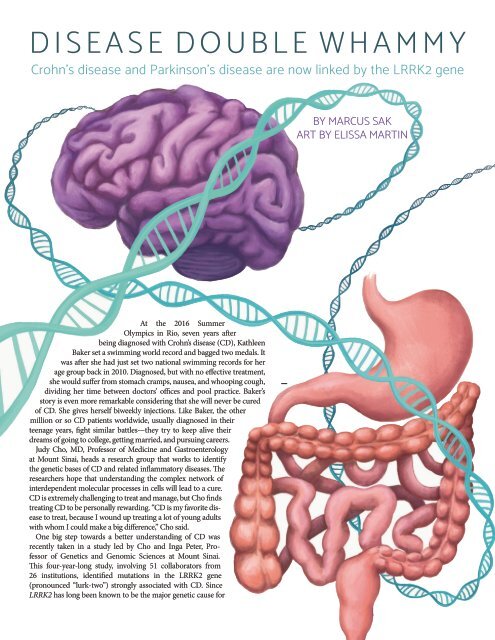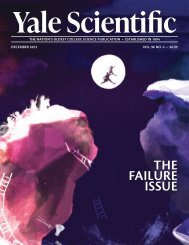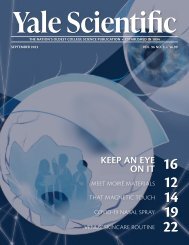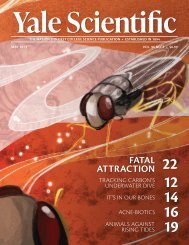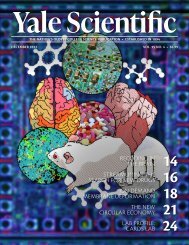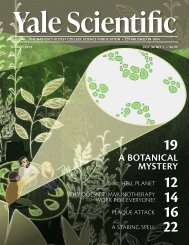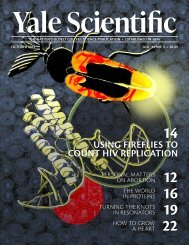YSM Issue 91.1
Create successful ePaper yourself
Turn your PDF publications into a flip-book with our unique Google optimized e-Paper software.
DISEASE DOUBLE WHAMMY<br />
Crohn’s disease and Parkinson’s disease are now linked by the LRRK2 gene<br />
BY MARCUS SAK<br />
ART BY ELISSA MARTIN<br />
At the 2016 Summer<br />
Olympics in Rio, seven years after<br />
being diagnosed with Crohn’s disease (CD), Kathleen<br />
Baker set a swimming world record and bagged two medals. It<br />
was after she had just set two national swimming records for her<br />
age group back in 2010. Diagnosed, but with no effective treatment,<br />
she would suffer from stomach cramps, nausea, and whooping cough,<br />
dividing her time between doctors’ offices and pool practice. Baker’s<br />
story is even more remarkable considering that she will never be cured<br />
of CD. She gives herself biweekly injections. Like Baker, the other<br />
million or so CD patients worldwide, usually diagnosed in their<br />
teenage years, fight similar battles—they try to keep alive their<br />
dreams of going to college, getting married, and pursuing careers.<br />
Judy Cho, MD, Professor of Medicine and Gastroenterology<br />
at Mount Sinai, heads a research group that works to identify<br />
the genetic bases of CD and related inflammatory diseases. The<br />
researchers hope that understanding the complex network of<br />
interdependent molecular processes in cells will lead to a cure.<br />
CD is extremely challenging to treat and manage, but Cho finds<br />
treating CD to be personally rewarding. “CD is my favorite disease<br />
to treat, because I wound up treating a lot of young adults<br />
with whom I could make a big difference,” Cho said.<br />
One big step towards a better understanding of CD was<br />
recently taken in a study led by Cho and Inga Peter, Professor<br />
of Genetics and Genomic Sciences at Mount Sinai.<br />
This four-year-long study, involving 51 collaborators from<br />
26 institutions, identified mutations in the LRRK2 gene<br />
(pronounced “lurk-two”) strongly associated with CD. Since<br />
LRRK2 has long been known to be the major genetic cause for


